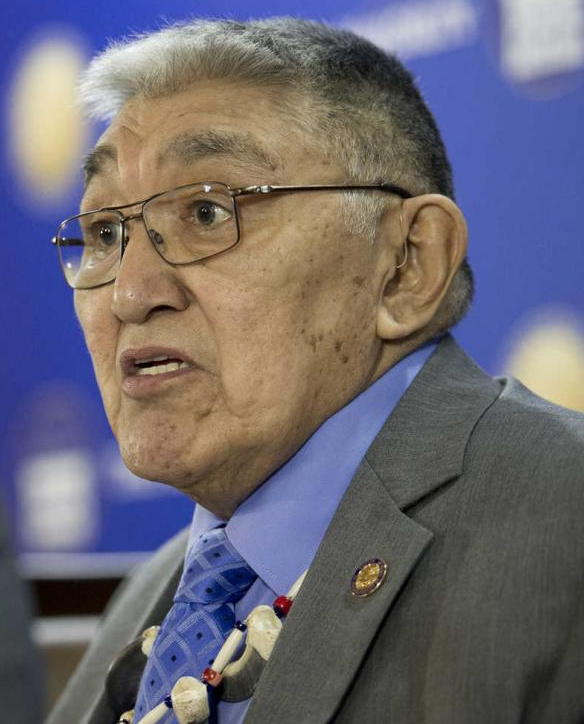ANCHORAGE — The Alaska Supreme Court has overturned a lower court decision, giving a disputed state House election to the Democratic challenger.
The court’s decision came hours after oral arguments ended in Anchorage. The decision means Dean Westlake won the Democratic primary in northern Alaska over the incumbent, Rep. Benjamin Nageak.
The court didn’t expand on the opinion, saying it would issue a written opinion later.
—
The Alaska Supreme Court hopes to issue a decision in a disputed state House primary race in northern Alaska before ballots for the general election go out this weekend.
“We will make every effort, of course, to get you a decision by Friday,” Chief Justice Craig Stowers told attorneys for both sides following nearly 90 minutes of oral arguments Wednesday.
The ballots have to be shipped to Nome and then distributed to the small communities in the state House district that is nearly the size of Montana.
“We have to have the ballots to Nome as soon as possible (Friday evening or Saturday noon) so they can then turn around to ship out to communities on Monday the 17th,” Josie Bahnke, the director of the Division of Elections, said in an email to The Associated Press.
The state of Alaska appealed after a lower court judge last week overturned the primary election results in House District 40 and ordered the state to certify incumbent Rep. Benjamin Nageak of Barrow as the winner over his Democratic primary challenger, Dean Westlake.
Nageak lost the Aug. 16 Democratic primary election by eight votes and challenged, saying election workers made egregious errors in the election.
In the village of Shugnak, all voters received both the Republican ballot and the ballot for other parties, including the Democrats. Voters should only get one ballot, but the state said no one was disenfranchised because the Democrats allow anyone to vote in the primary and there are no Republican challengers for the seat.
In overturning the election last week, Superior Court Judge Andrew Guidi threw out part of the ballots, deducting 12 votes from Westlake and two from Nageak and ordered the Division of Elections to certify Nageak as the winner.
“Voters from Shugnak have already been contacting Mr. Westlake saying, ‘What happened to my vote? Why doesn’t it count? What did I do wrong?'” said Westlake’s attorney, Thomas Amodio.
He said this sends a message that votes cast on election day may be thrown out later.
“These were blameless rural Alaskan voters. They should not be punished for the mistake of an election worker,” he said. “In this case, the trial judge substituted his will for the will of the voters.”
The state’s attorney, Laura Fox, said errors were made, but none of them reached the level that constituted malconduct — or purposeful errors, a standard necessary to change an election’s outcome.
Nageak’s attorney, Stacey Stone, asked the court to affirm the lower court’s ruling. Stone said they have successfully met the “heavy burden” of proving malconduct on the part of the election workers, who ignored election materials that were sent to the polling place and failed to put out ballot choice cards on tables and put up posters.
“But then it goes one step further because the Division (of Elections) is charged by statute with a duty to train these election workers,” which the agency didn’t do, she said.
Amodio said voting history is on Westlake’s side, whether or not there were election errors.
Nageak and Westlake met in the 2014 primary election, with Nageak winning the race by 131 votes. In that election, Westlake won Shugnak 49-6. In the latest primary, he won 47-3.
“Those, to me, are pretty compelling raw numbers,” he said.
The state is asking the court to uphold the original results showing Westlake as the winner. If that doesn’t happen, it asked that the Guidi’s verdict be overturned and suggested other remedies.
Among those are having the court order a special election, putting both men’s names on the general election ballot or voiding the election and allowing the state Democratic Party to fill the vacancy.
Justices said there were other options if they choose to overturn the verdict, including sending the decision back to the trial court for reconsideration or just reversing the lower court and letting the Division of Elections decide how to proceed.

